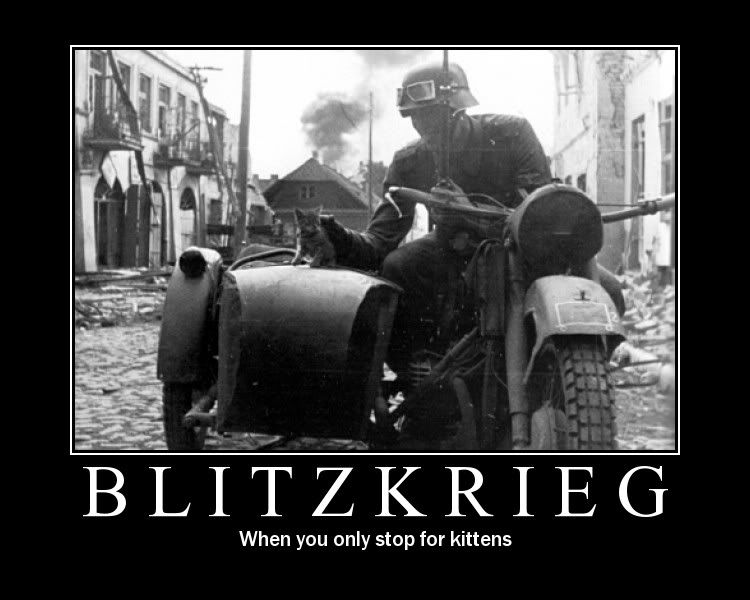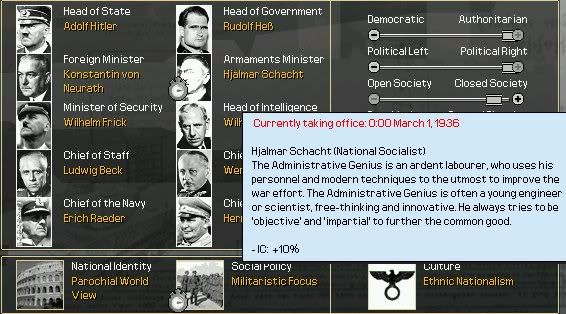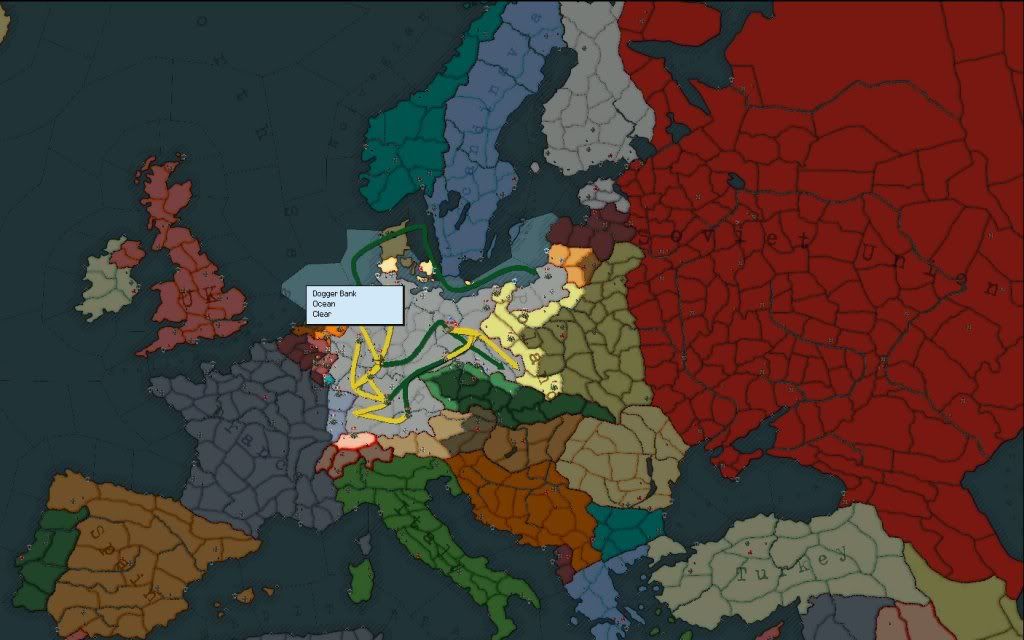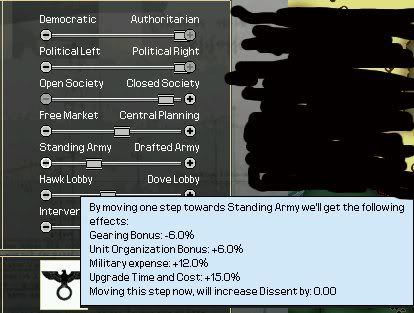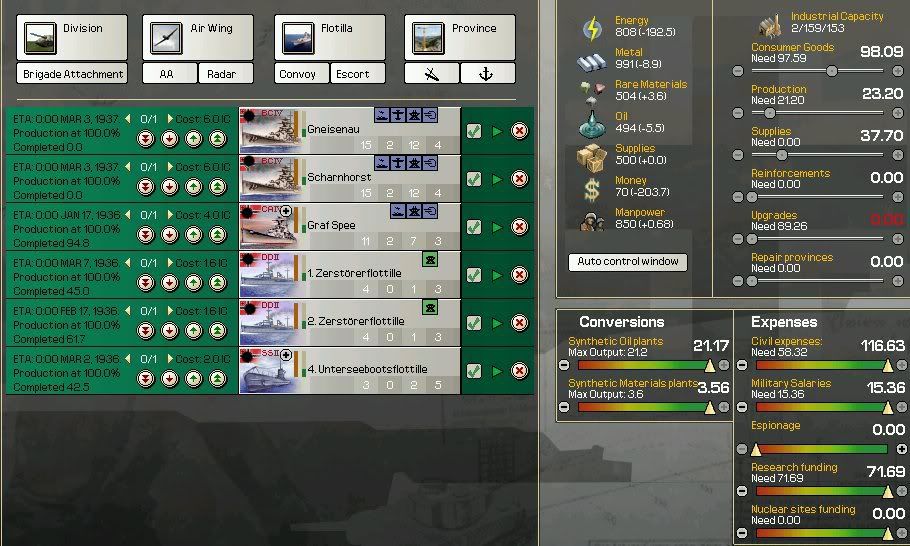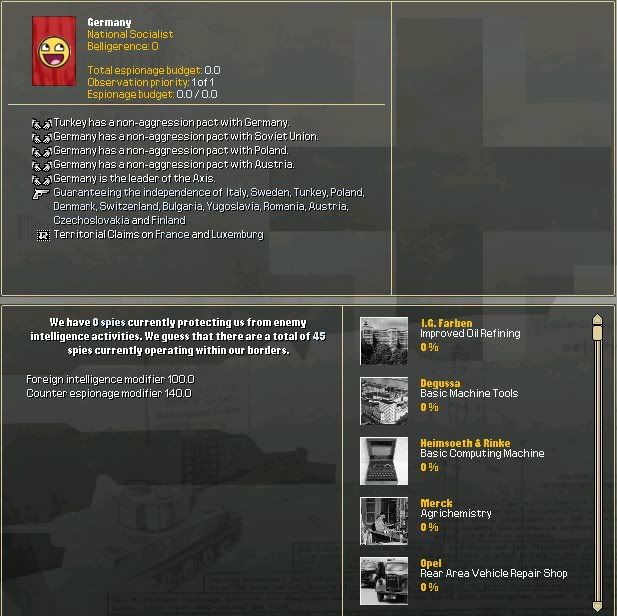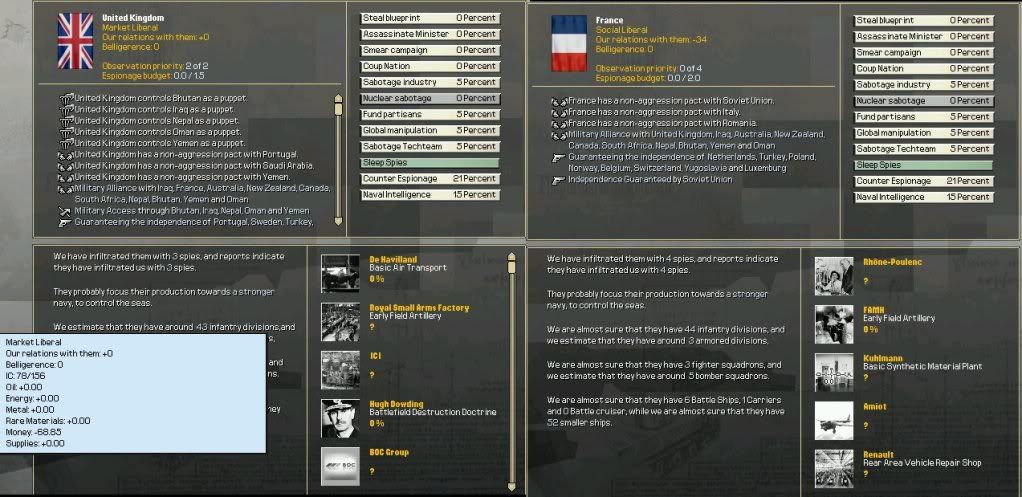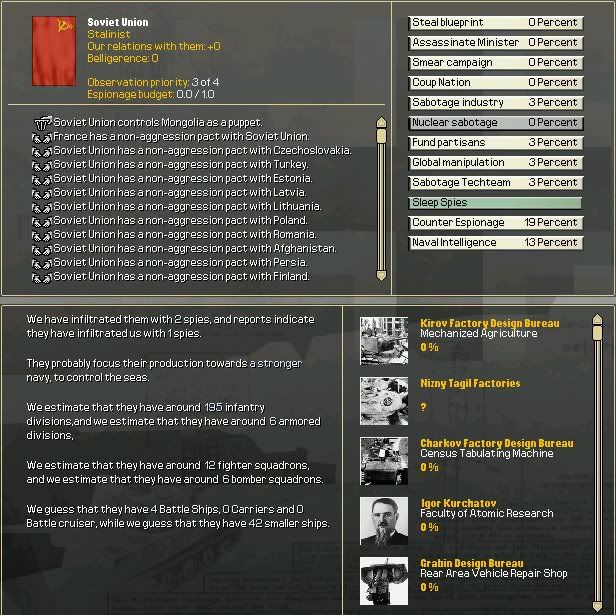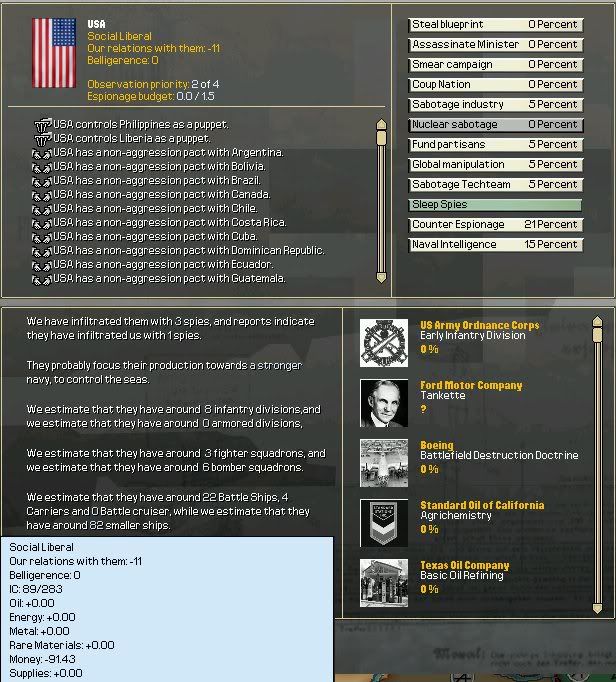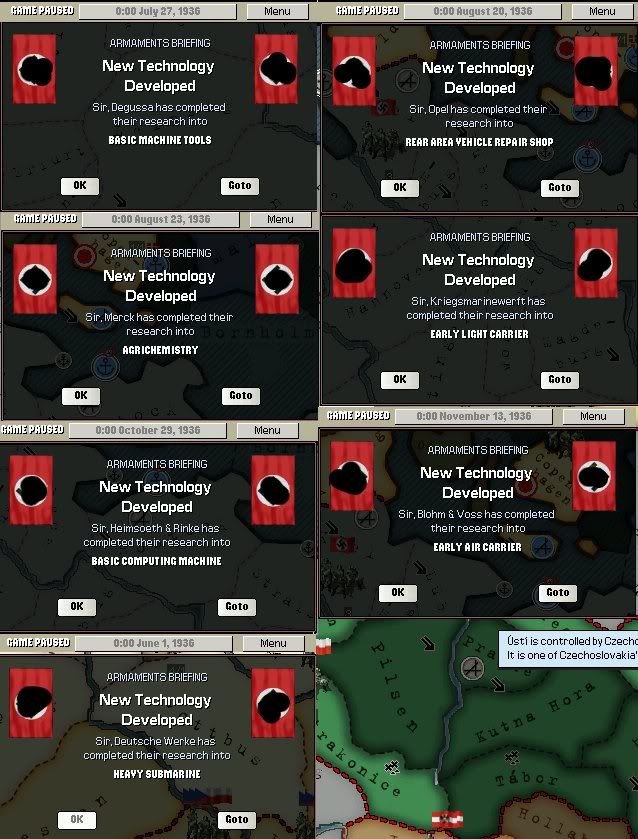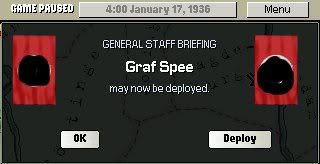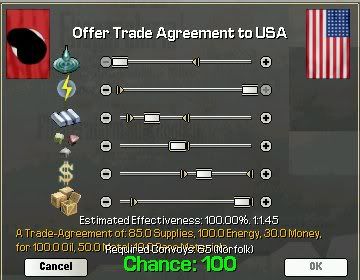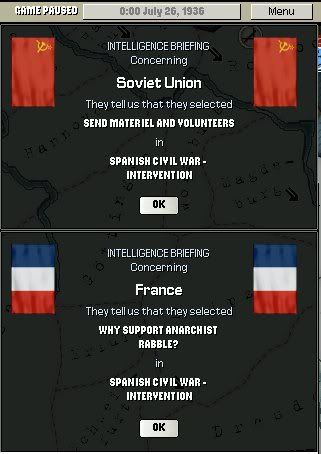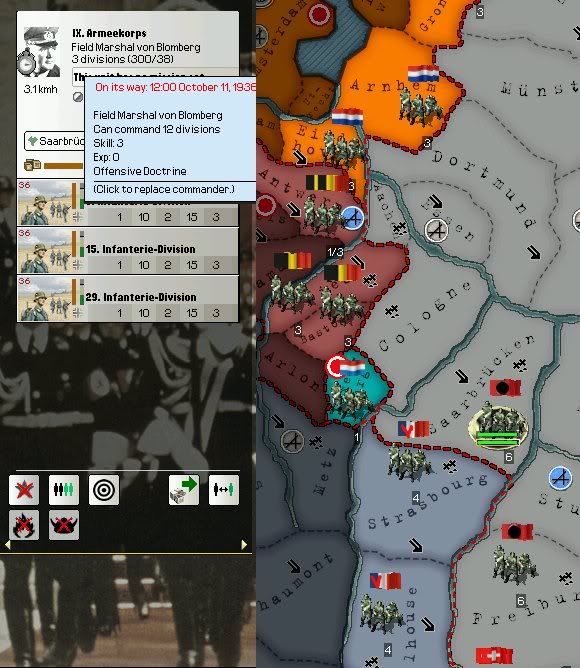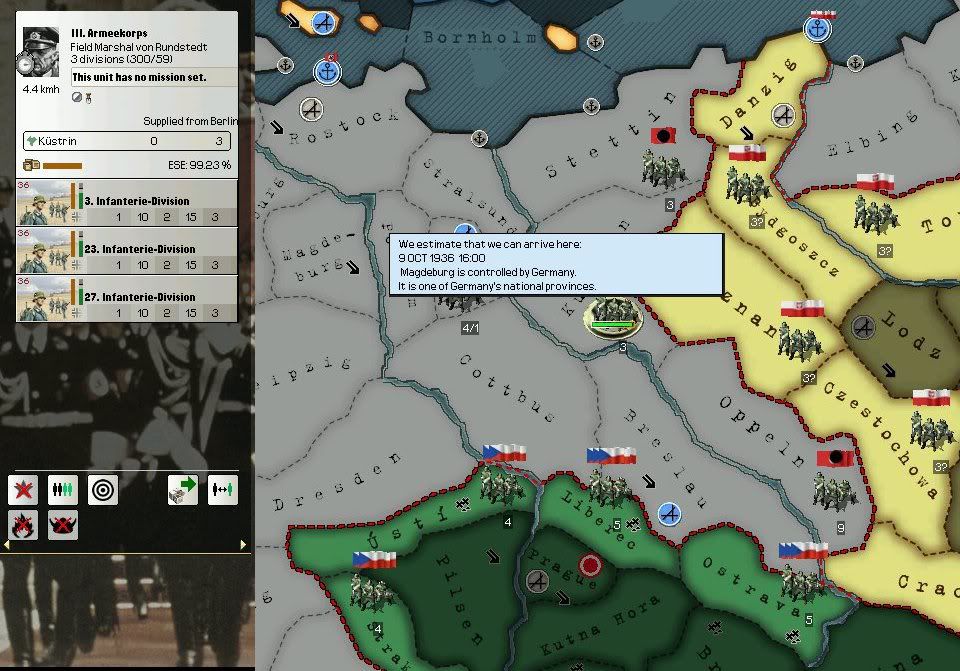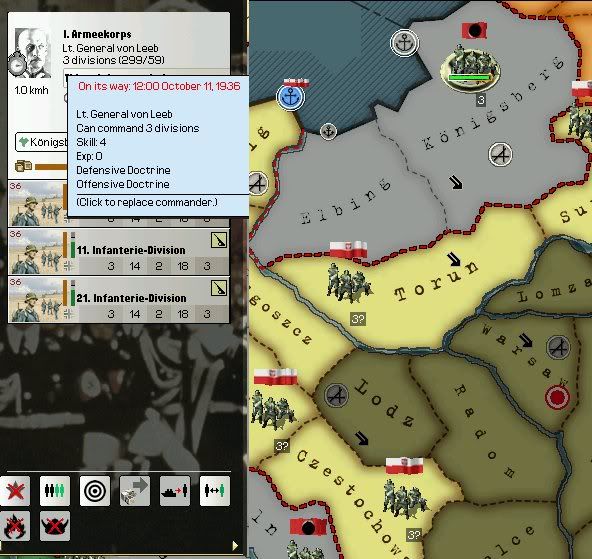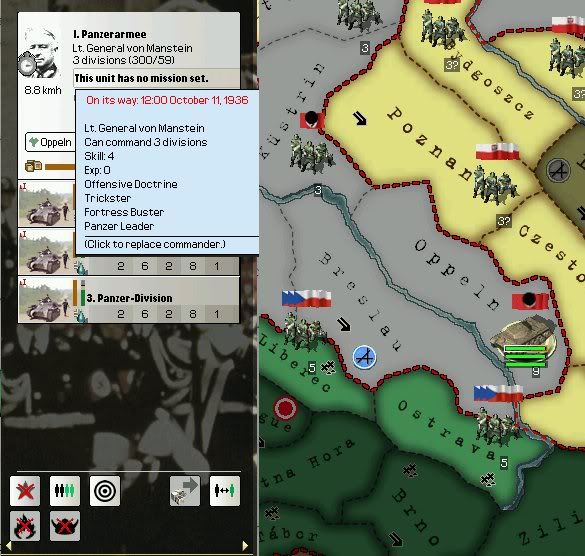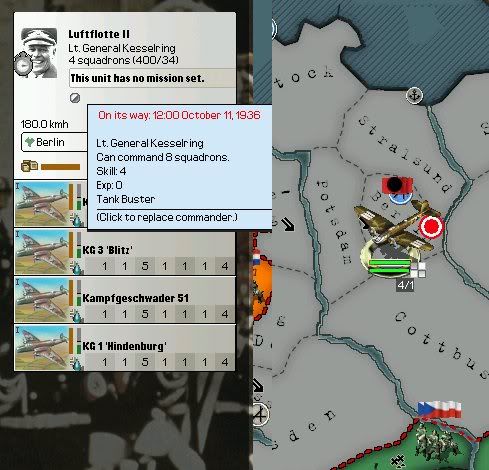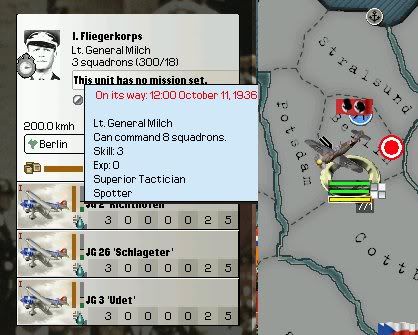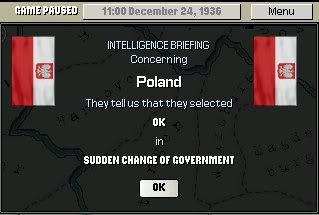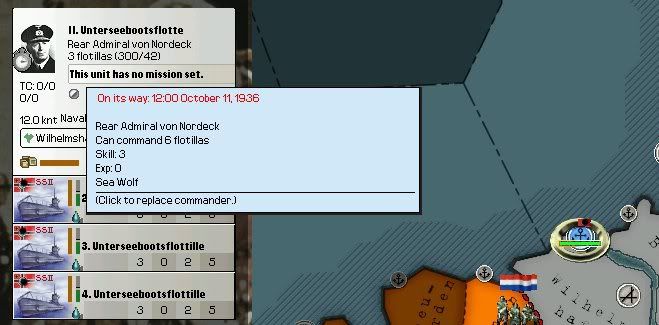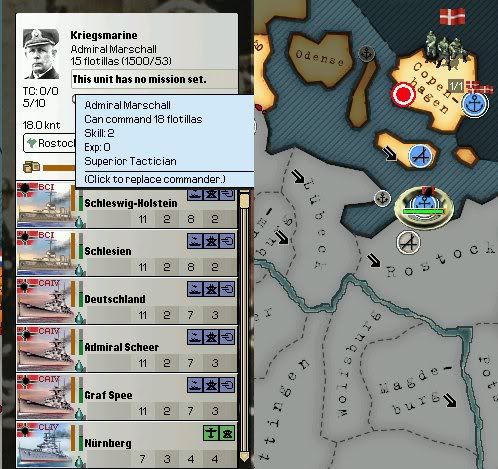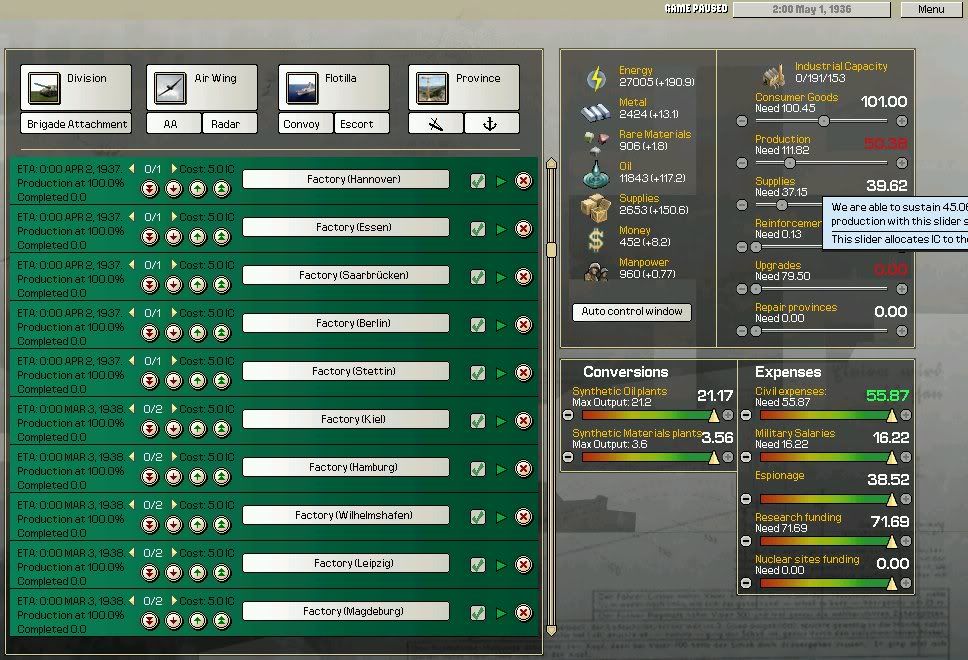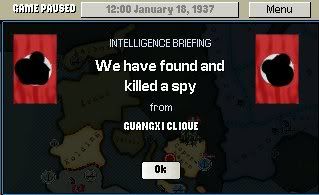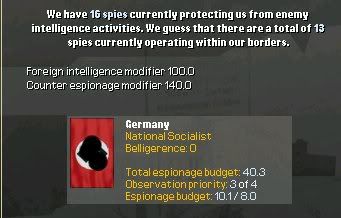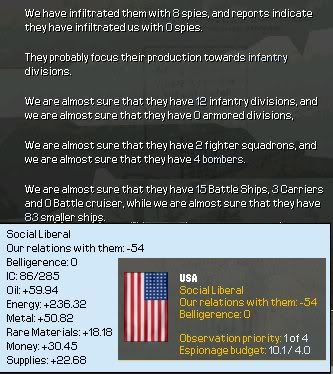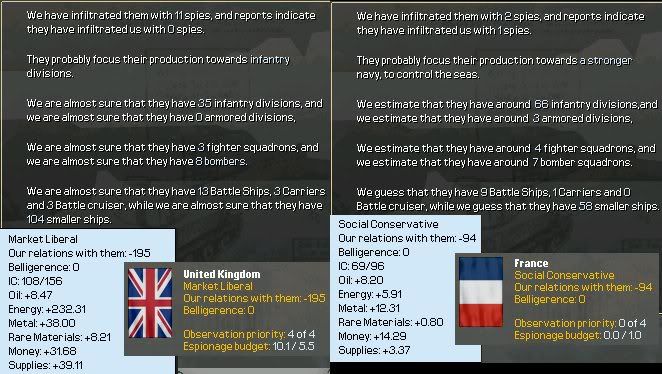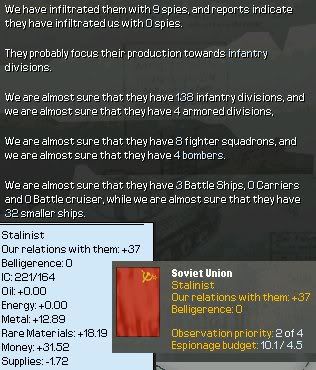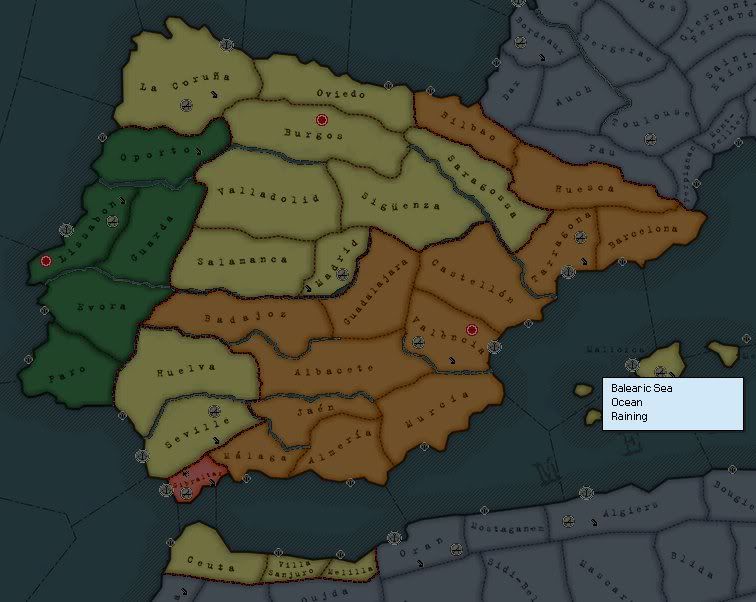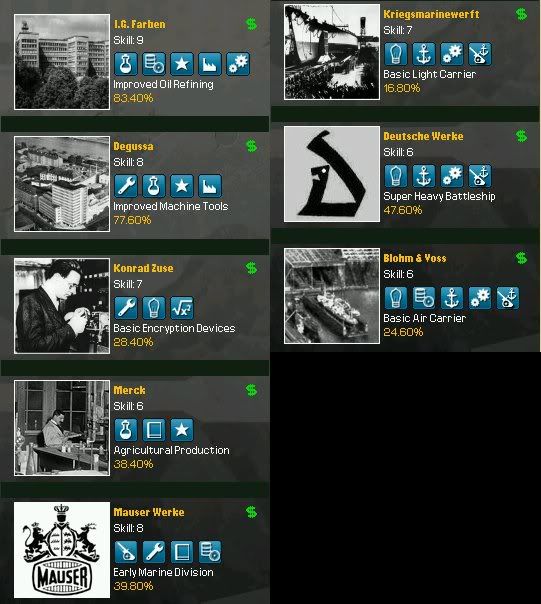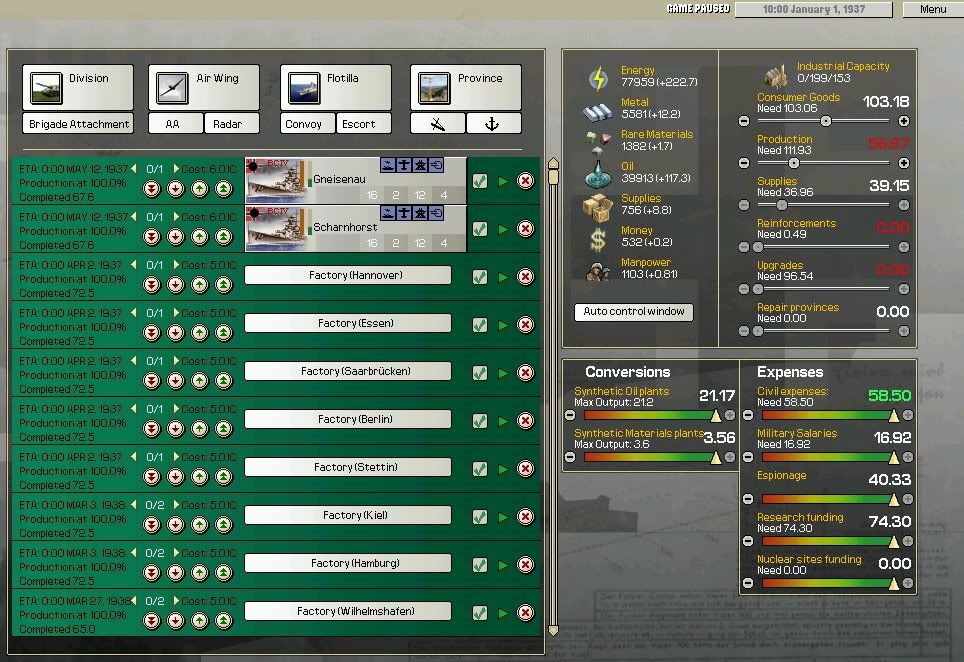Prelude
00:00 1 January 1936
Reichstag
“Haaaallo, alles! Guten Tag, guten Tag, Herr Göring! Herr Schacht! So glad you could make it! Won’t you have some tea? Fresh in from British India. They sure do have a good thing going there, don’t they?” Hitler began greeting his guests as they arrived for the late-night Cabinet Meeting, fluttering about the room, making everyone as comfortable as possible. One would hardly guess all his “guests” were the men running the German state.
“Actually, mein Führer, I’m an Air General now,” chirped Göring sheepishly.
“Ah, yes! I recall promoting you now! You’ve done quite well for yourself, you know. Hopefully it shan’t be too long before you’re exercising those ornithology skills we’ve spent so much money for you to hone.” Hitler remained happy in his ignorance of the air forces. He figured it was best left to the experts of that branch, being himself an Army sort of fellow.
01:00 1 January, 1936
Reichstag
“Now that we have all had some British tea at the expense of the Party…” Hitler paused for laughter but received only blank stares. “… We can begin our meeting to discuss our plans for Germany this coming year. I know this is a late meeting, but I
haaaate early days. So down to the issues. I, for one, would love to get in on this tea business in India. Such a lucrative trade.”
“Mein Führer?” interrupted Rudolph Hess, the man who oversaw everything Hitler had no interest in, the detailed administration of the State.
“What is it, my dear Hess?” replied a perplexed Hitler.
“Perhaps we should first examine the current situation in Germany, beginning with external security.”
“Ah, yes! Of course! What an excellent idea. I knew there was a reason I put you in charge of things, Hess. Before we can take over the tea exporting business in India, we must first assess our own resources. Good thinking! I suppose we should begin with the report from the Ministry of Security. Who’s in charge of that, Hess?”
“Wilhelm Frick, mein Führer. I’ve prepared a special chart of the Cabinet for you, so you can keep things straight,” replied Hess as he handed Hitler a shiny chart sketched in the first ten minutes of the meeting.
“Excellent!” Hitler was overjoyed with Hess’s fine work, and scanned the document for a few minutes before finding the correct Minister.
“Ah, here we are! Wilhelm Frick. I’d ask you for your report, but you see this little mustache on your picture?” inquired Hitler, handing the document to Frick. “I do not appreciate such graffiti. You are fired, sir! Clear out your desk immediately.” Hitler took a moment to compose himself and straighten his jacket. “Hess, I may have made a hasty mistake. Do we know who is responsible for this… this… outrage?” Hitler looked accusingly at his HoS.
Before Hitler could respond, Chief of the Army von Fritsch, with a trembling voice, spoke up, “Perhaps we should simply move on with business, mein Führer.”
“Very well, we’ll replace Frick with somebody…” Hitler trailed off as he struggled to think of somebody he liked. “Aha! What about Rudolph Diels, Hess? Never mind, just make it happen. Oh, and tell the Armaments Minister he’s fired. I can never remember his name. Just tell him that’s why. Beck! Report.”
“Yes, mein Führer. As you know, we are still trying to pull Germany out of the shambles of the post-war period. We’ve worked wonders so far, absolute wonders. But militarily, we are still very much on the weak side. I’ll let the Chiefs of the three military branches elaborate more. Von Fritsch, you may begin.”
“Yes, certainly, sir,” affirmed von Fritsch as he pinned up a map of central Europe.
“This is a map depicting all our troop movements as their orders stand now. Despite the large navies of the Allies, and the Minister of Security has informed us they are, in fact, large, we believe the greater threat comes from the border regions with France and Poland, as both are still better from previous wars, despite winning out so far in the long run. As such, we have redeployed all but three divisions from the north to redistribute to the Wacht am Rhein and the newly formed Ostfront.” Von Fritsch was confident he had delivered all the crucial information the Führer might want. But he was mistaken.
“And these three divisions here in Prussia? We fear for our borders here in central Germany, but not our dear, isolated Prussia?”
“Mein Führer, there is nothing we can do at present to remedy the situation,” von Fritsch offered as his only defense.
“Nothing? We can’t send more troops? We do have more troops, don’t we? Some thirty divisions more, von Fritsch! You’re the Chief of the Army! Send some men!”
“But, sir…” von Fritsch pleaded
“No buts, von Fritsch! send them!” warned a wide-eyed Hitler.
Beck interluded, “Mein Führer, I believe what Beck intends to say is that while we do have more troops, there are two main reasons we cannot send more to Prussia, much as we hate to see our beloved Königsberg surrounded by filthy Poland. I mean, have you seen how many horses they have? Seriously? The countryside is awash in horse filth up the city walls. For one, we cannot allow the French to feel unwatched. While we are not yet strong enough to re-occupy the Rheinland, we must be ever vigilant against French vengeance. And while a strike from Prussia to Warsaw might end a war with Poland quickly, we have neither spare divisions nor transports available to ferry them.”
“Yes, mein Führer! That is exactly what I was getting at!” interjected von Fritsch with relief.
“Very well,” sighed Hitler. But I want transports constructed as soon as possible to relieve the men there! We must hold Prussia in the case of possible attack! And Panzers to reconnect Prussia to the rest of Germany through Danzig. Poles be damned! They will fear our Panzers if they dare to stop us. How soon can we be ready to attack?”
“Estimates are two years at the earliest, mein Führer. Three to securely build up our forces for a short offensive and to guarantee defense against France.” offered Beck. “Grand Admiral Raeder, if you please,” barked Beck before Hitler could interrupt.
“Nothing to report on the Navy, really. We have a few heavy ships, a handful of small ships, a dozen or so U-boots, and not a single organized transport unit. We are badly in need of materiel in the event of a naval war, but we do concur with von Fritsch that the naval theater is secondary to potential ground conflicts, so long as our beaches are secure.”
“At least it isn’t a threat at present, sir. We would also prefer altering our training regimen to support a more professional Army. Göring, make your report fast, if you prove able.” derided Beck. He was none too fond of the doting Göring.
“Yes, of course. We estimate our current bomber forces to be adequate for now with roughly 800 bombers. But our interceptors are woefully lacking should our enemies invest heavily in bomber technology, as we have a mere 300 or so. Our aircraft are superb, but I should think we need much more training before a serious war effort. I believe our pilots lack sufficient belief in the National Socialist ideal to be truly effective in combat.”
“That is sufficient, Göring.” Beck snorted as he rolled his eyes.
“I understand all too well, my dear Göring. I shall give the air arm all the support it needs and deserves as soon as we are able. You hear that… wait, who is our new Armaments Minister, Hess?” asked Hitler, as he had already forgotten the events at the beginning of the meeting.
“Herr Schacht, report please.” came Hess’s bored reply.
“Yes, sir,” replied Schacht, pinning two charts over von Fritsch’s map.
“First I’d like to say what an honor it is to join your illustrious Cabinet, mein Führer.” said Schacht with a sharp but ill-performed salute. “Before we get into production, I’d like to cover our research, as I am also now in charge of funding. As you can see, we have a lot of funding to divide among several major projects. We believe the most significant are the Improvements to Oil Refining and the Basic Machine Tools we use for mass-production. We are also working on some new ship designs for Grand Admiral Raeder in the future, as we are already far behind on these and we lead many other fields.” Schacht was pleased with his work so far, and paused to bask in his pride.
Hitler seized upon Schacht’s pause, “So you are working on no new planes for Herr Göring? I promise him the support of Germany’s industries, and this is what you give him? Tiny, floating hangars!? I would fire you if you could occupy your office before the otherguyIcan’tremember leaves! Continue!” huffed the irritated leader, convinced he was surrounded by Germany’s most foolish.
“I… I’m afraid not, mein Führer,” whimpered Schacht, struggling to hold back tears. After a few moments of sobbing, he scrounged up enough courage to continue with the Production chart. “I know this will not please you, sir, but we currently have two battlecruisers, two destroyer flotillas and a submarine flotilla under construction. The smaller ships will all be launched by the end of March of this year.” Schacht almost winced as he awaited the Führer’s reaction.
“Good work, Schacht! I should have hired you sooner! Dear Raeder needs many new ships as soon as we can get them to him. As our navy has long been small and skilled, I sincerely hope we can reverse the former of these traits. Anything else?” he calmly inquired.
Bewildered, Schacht continued to the third part of his report, “Not really. Resource stockpiles are sufficient, and I will engage in trade as soon as this year’s numbers are verified. Output remains strong and consistent, but we must look to obtaining more Oil in the future, as it is a vital resource to all our vehicles of war. Herr Canaris, I yield to you to relay our industrial comparison.” Schacht scampered back to his seat to resume watching the proceedings, cradling his abdomen and rocking gently as he sat.
“I’m afraid my report requires a large number of charts,” began Canaris.
“Have you been here the whole time, Herr Canaris?” asked the curious Hitler.
“Yes, sir. I’m very good at my job,” replied the Dismal Enigma as he turned back to his charts.
“I’m afraid since the takeover of the Reichstag, we have yet to firmly establish internal security agents, but I shall talk to Schacht in order to fund more agents, domestically and abroad. Now, we can see from the chart we have 45 spies within our borders. That we know of.”
Hitler once more seized upon a rhetorical pause, “Within our borders? Do those borders include Prussia? What if they are all in Prussia? They could stage a coup!” The Führer’s eyes widened in horror as he realized what might be happening in what many in the Wehrmacht referred to as the Polish Pocket.
“Mein Führer, there is no reason to suspect they are all there or that they are, in fact, interested in beginning a coup. In fact, it is much more likely they simply wish to see what we are up to before deciding upon such a course of action. Or one a little more comforting: war.” Canaris struggled to console the Führer as he moved on to the next chart.
“Here we see what our old friends the English and French are up to. Albeit not very well because we have few spies among them. We know they have several spies here between them, and we shall begin to turn them as soon as possible. There is no hope for catching up with their navies in the near future, but their armies are only slightly larger and far less disciplined. According to our numbers, England is presently not running her industries at full capacity, though she could match us should she prove able to scrounge up the resources from abroad. We don’t know about the French, and nor do we much care. Should we end up in a war, we suspect we could quickly outwit the French.” Canaris switched charts as he finished.
“The Soviet Union, contrarily, fields the world’s most massive army, by our estimates and their birth records, an army several times larger than our own.” Canaris paused for effect.
Again Hitler’s eyes widened as he began to panic. “We need more Panzers! Spawn moar Panzers!!!” Hitler shouted. Then he went silent with fear.
“They only have twice as many Panzers as we do at present, by our estimates. Fortunately, each of our men is worth three of theirs. The same cannot be said of our tanks, but I’m sure we will develop more advanced designs in the future. Not to worry. The Soviets are, according to reports, in disarray and on the verge of Stalin killing many of their officer corps. The thing we need fear is their industry. We have no reports to confirm, but we hear rumors their industry already outpaces us. And is growing quickly.”
Again, Hitler’s eyes widened, but this time he burst from his chair with righteous indignity and shouted, “Schacht, invest in factories for the Reich! We will not be outpaced by Russian swine! They have more men, but we will have a machine for every one of ours: a tank, a plane, artillery, bombs! Factories to no end, Schacht! Factories!” Hitler’s last shout echoed down the hall after him, for he had run out to find his bunker for fear of Soviet industries.
Canaris absent-mindedly turned to the next chart as he stared down the hall at the retreating Hitler.
“But I hadn’t finished,” he pouted, disappointed that his fine chart would go to waste. “I believe the meeting is adjourned until next January unless something pressing arises. Look over this chart if you like. It was supposed to lighten the mood.” Canaris tossed his papers in the air and walked dejectedly out of the room, closing the door behind him.
Rudolph Diels, newly appointed Minister of Security, had slipped in a side door mere minutes before. Not knowing what to think, he took two months for vacation in the mountains to collect himself. Schacht could not be found for the same two months because he was curled up in bed, still weeping over the Führer’s scathing remarks.
